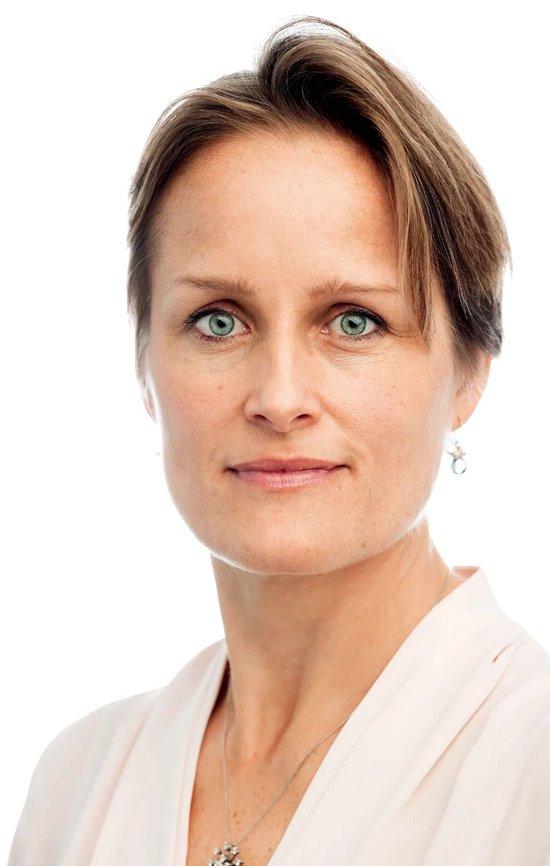

The UK intelligence system underwent a landmark self-update in the summer of 2025.
In late June, the British government announced the appointment of Blaise Metreweli as the next Director of MI6 (Military Intelligence Six), marking the first time in its 116-year history that a woman would hold this key position. Blaise Metreweli, currently the Director of Technology and Innovation at MI6, will officially take over from Richard Moore on October 1st, becoming the 18th Director of the agency since its establishment in 1909.
Inside MI6, the position of Director is commonly referred to as “C”, the only member of the organization with an open identity, responsible for overseeing the agency’s global intelligence operations and reporting directly to the Foreign Secretary.
“This symbolic appointment comes at a time when the international situation is increasingly turbulent,” said UK Prime Minister Stern. The UK is facing increasingly complex security challenges: from foreign espionage ships entering its waters to cyber attacks targeting public infrastructure becoming more frequent, MI6 is undertaking an unprecedentedly challenging mission.
Stern emphasized in his statement that the intelligence departments of the UK are now more important than ever. Blaise will demonstrate the leadership needed by the nation, “to defend our security and protect our people—this is at the heart of my ‘transformation plan’.”
A view of MI6. Photo/Visual China
“Spy is my only desire”
Metreweli is a professional intelligence officer. In 1999, she graduated from the University of Cambridge’s Pembroke College with a degree in Anthropology and joined MI6 the same year, becoming an overseas agent primarily responsible for recruiting intelligence personnel and establishing secret networks abroad.
According to The Times, during her university years, Metrevelli was known for her quiet and reserved nature, often dedicating time to books and research. She also served as a member of the Cambridge Women’s Rowing Team, helping the team narrowly defeat Oxford in the famous 1997 Oxford-Cambridge match.
However, after that period, Metrevelli seemed to vanish from public view. She had no social media accounts or public resume, only being briefly mentioned in government documents: “Making outstanding contributions to British foreign policy.”
“She was almost the only one in our generation who didn’t have Facebook,” said a former rowing teammate.
It is reported that Metrevelli originally planned to apply for a position at the Foreign and Commonwealth Office, but due to her language skills and cross-cultural background, she was “transformed” by the intelligence system. After joining MI6, she quickly became involved in Middle East operations, fluent in Arabic.
Blaise Metrevelli. Photo/IC
From 2000 to 2003, Metrevelli served as a second secretary at the Department for International Development in Dubai, carrying out her first overseas intelligence mission. This period coincided with the events of 9/11 and the outbreak of the Iraq War, leading to significant changes in the geopolitical landscape of the Middle East. She participated in multiple intelligence cooperation and sensitive operations, accumulating crucial experience in counter-terrorism and security.
After completing her mission, Metrevelli returned to London, entering MI5 as part of an intelligence exchange program, primarily addressing threats from “hostile countries” such as Russia and Iran while also focusing on combating terrorist networks.
By the end of 2006, Metrevelli returned to MI6, continuing to shuttle between frontline operations and headquarters. In 2021, she was appointed as the Director of Technology and Innovation at MI6, codenamed “Q”, becoming the first female leader in the history of the position.
She is in charge of technological innovations in the intelligence system, including anti-biometric technology, cyber defense and attack, deepfake identification, and covert communication.
In addition to her rich experience in intelligence operations, Metreweli also demonstrates exceptional public communication skills. In 2021, she anonymously interviewed for The Daily Telegraph under the pseudonym “K Director,” making a rare public statement on the revision of the Official Secrets Act. She pointed out that Britain needs to establish a more modern and powerful legal framework to address the increasingly aggressive interventions by foreign forces. “Our work is destined to be done in secrecy, but the national security frontier requires the understanding and participation of the whole population.”
Shortly afterward, the “National Security Act 2023” was officially introduced, marking an important milestone in the modernization of Britain’s anti-spy system.
In 2022, Metreweli, pen name “Aida,” gave an exclusive interview to The Financial Times, discussing her personal growth and career aspirations for the first time. She recalled growing up abroad and stealing a copy of “The Yates Spy Handbook” from her brother when she was young, erasing the brother’s name on the cover and solemnly writing her own name instead. She and her friends used “pig pen codes” to pass notes, hid messages under flower pots, and practiced real intelligence activities in games. She humorously described herself as a “geek,” with “spy” being her only professional dream.
During the interview, “Aida” candidly stated that she never hesitated due to a lack of female predecessors in a world still dominated by men. “Spying is my only desire for a career.”
After Metreweli was officially appointed as Director of MI6, Claire Hardy-Holmes, an intelligence historian and author of “Her Secret Service: The Forgotten Female Spy of Britain,” commented, “Clearly, her gender has historical significance, but in terms of her professional competence and technical expertise, this appointment was extremely precise.”
”
在克莱尔看来,梅特雷韦利的职业生涯大半时间在海外,包括在战区的经历,并且拥有突出的外语和技术背景,是“当代间谍的典型代表”。
关于梅特雷韦利的家族背景,此前外界知之甚少。据英国与俄罗斯多家媒体报道,她的祖父康斯坦丁·多布罗沃尔斯基曾是二战期间苏联红军的叛逃者,后来在纳粹占领下的乌克兰切尔尼戈夫地区担任德国军方的首席线人。
6月26日,英国媒体披露了在德国弗莱堡的军事档案馆里发现的数百页关于多布罗沃尔斯基的原始文件。资料显示,纳粹情报部门称其为“30号特工”,外号“屠夫”。在多封亲笔信中,他以“希特勒万岁”作为落款,自述“亲自参与了对犹太人的清洗行动”,并详细描述了自己在基辅等地执行秘密处决的过程。
俄新社补充称,多布罗沃尔斯基1906年出生于乌克兰切尔尼戈夫,父亲为德波混血,母亲为乌克兰人。1926年,多布罗沃尔斯基因涉嫌反犹太主义、煽动反苏和隐瞒出身被流放西伯利亚10年。1937年流放归来后,他前往符拉迪沃斯托克学习工程经济学。苏联“卫国战争”爆发后,他“主动申请前线服役”,但在1941年8月叛逃,投诚纳粹德国。
随后,多布罗沃尔斯基加入德国秘密战地警察(GFP)。该机构参与“清洗行动”,对政治异见者、游击队员及犹太平民进行处决。作为间谍,多布罗沃尔斯基每月领取81德国马克。当时,苏联方面曾悬赏5万卢布通缉多布罗沃尔斯基,称其为“法西斯食人魔”。
In 1943, Barbara, the wife of Dobrovolskiy, and her two-month-old son, Constantine, fled to Britain. In 1966, Constantine officially became a British citizen and changed his surname to “Metlevelli.” Constantine Metlevelli attended Latimer School, Oxford University, and Cambridge University, and served in the British Army before being assigned to the Riyadh Military Hospital.
In 1977, Constantine’s daughter, Blaise Metlevelli, was born. Her career trajectory was entirely different from that of her father; after graduating from university, she entered the intelligence system and eventually rose to become the head of MI6, a key figure in the national security system.
The revelation of Metlevelli’s grandfather’s past caused a sensation. According to a report by the BBC Russian channel, based on relevant archives, the KGB in the Soviet Union speculated that Dobrovolskiy might still be alive in 1969 and listed him as “number one wanted” for capture. A 460-page document marked “Top Secret” detailed his wartime crimes and accused him of participating in the execution of Soviet citizens as a foreign intelligence agent, becoming a “traitor to the state.”
On June 28, the British Foreign Office issued a statement saying that Metlevelli “has never met or seen her grandfather.” A government spokesperson stated that Metlevelli’s family history is filled with conflict and divisions, “Just like many people with Eastern European heritage, the public has a very limited understanding of this history,” but it is precisely this complex background that prompted Metlevelli to devote herself to public safety work amidst the rise of extremism, dedicated to protecting the British public from threats from “hostile countries.”
MI6 also indicated that Metlevelli had never interacted with her grandfather, and her choice of profession and values were entirely grounded in the responsibilities and mission of the modern British intelligence system. The agency emphasized that Metlevelli’s appointment was based on a comprehensive consideration of her “professional skills and strategic vision.”
After being officially appointed, Metreweli expressed in a brief statement that leading MI6 “fills me with immense pride and honor”. However, as of July 7th, she has not yet made any public comments about her grandfather’s history.
MI6 is the British intelligence agency responsible for collecting and analyzing intelligence worldwide, planning covert operations, and maintaining Britain’s strategic interests in international affairs. Alongside MI5 (responsible for domestic security) and GCHQ (government communications headquarters), these three agencies form the “iron triangle” of British national security.
Among these three intelligence agencies, MI6 has always been considered the most mysterious. In contrast, MI5 welcomed its first female chief, Stella Rimington, in 1992, followed by Eileen Maningham-Buller from 2002 to 2007; Anne Kite-Butler became the first female head of GCHQ in 2023.
Charlotte Philby, author of “The Secret Life of a Spy”, believes that Blaise Metreweli’s appointment as Director-General of MI6 marks not only a high-level change within the British intelligence system but also signifies a profound transformation in the gender structure within the intelligence community.
Currently, among the three major British intelligence agencies, the proportion of women employees remains less than 40%, and only four women have advanced to the highest positions. However, the value of women in the intelligence system is being redefined. A female operations director at MI6 once publicly stated: “In a culture dominated by men, women are often undervalued, which in turn becomes an important advantage for us in building trust and breaking through defenses.”
In fact, women have long held a place in the British intelligence system. In 1929, Jane Symons became the first female intelligence officer at MI5, responsible for investigating Soviet espionage activities.
Afterwards, she joined the MI6 and became a double agent under the dual role of spies, Jin Phelps, who was also her most feared opponent. In his memoirs, Phelps wrote: “Jane may have been the most capable professional intelligence officer in the history of MI5.”
It wasn’t until the late 1970s that MI6 began officially recruiting women for intelligence roles. During an interview, Stella Rimington recalled that when she joined MI5 in 1969, “women were only allowed to do logistical tasks, while the real work of gathering intelligence and field operations was entirely dominated by men.”
Entering the 21st century, the gender structure of intelligence agencies like MI6 began to change. Currently, three out of four key positions at MI6 are held by women. In 2014, to recruit more female agents, an MI6 official anonymously spoke about the unique advantages motherhood brings to spy work: “This allows me to establish connections with people from all walks of life, from terrorists to government officials… Compared to single women, I am less of a threat because they also have mothers, sisters, and daughters.”
In 2022, The Financial Times conducted a joint interview with three female high-ranking officers at MI6. Jane Metreville discussed the psychological challenges faced by female agents: “The moment you decide to become an agent, you must make thousands of risk-based judgments, but you don’t know how to respond emotionally. Ironically, it’s somewhat like walking in an uninhabited desert.” She used the pseudonym “Aida” to suggest that in this highly uncertain profession, women often excel at finding ways to connect with others. “We are the outsiders, and being marginalized often means having more perspectives.”
Richard Moore, the current director of MI6, has always been an advocate for gender diversity.
He has clearly stated, “The time is ripe for appointing women,” arguing that promoting gender balance and enhancing organizational efficiency are not contradictory. He also played a significant role in Metreveli’s “succession” by praising her as both an outstanding technical expert and a strategic leader with global vision.
The Washington Post commented, “In this era of uncertainty, appointing a woman to head the MI6 represents a milestone self-update for the British intelligence system.”
Now, as the Middle East situation continues to fluctuate, the Russia-Ukraine conflict enters its fourth year, cyber attacks and information warfare escalate in Europe, and geopolitical risks worldwide intensify. On the other side of the Atlantic, the US intelligence system is also undergoing profound adjustments. After Trump returned to the White House, there were numerous uncertainties in US-UK intelligence cooperation. As early as 2018, Trump publicly denied Russian interference in the US election, stating he was more convinced of Putin than the CIA, sparking widespread doubts among allies. After his re-election in 2025, he quickly dismissed Timothy HO from his position as Director of National Security, purging core analysts from the intelligence community.
British Foreign Secretary David Lamm said, “In an increasingly turbulent global situation where technology becomes key to countermeasures, our adversaries are deeply collaborating. Blair will ensure Britain can face these challenges with ease, safeguarding both domestic and international security.”
Published on July 2025.